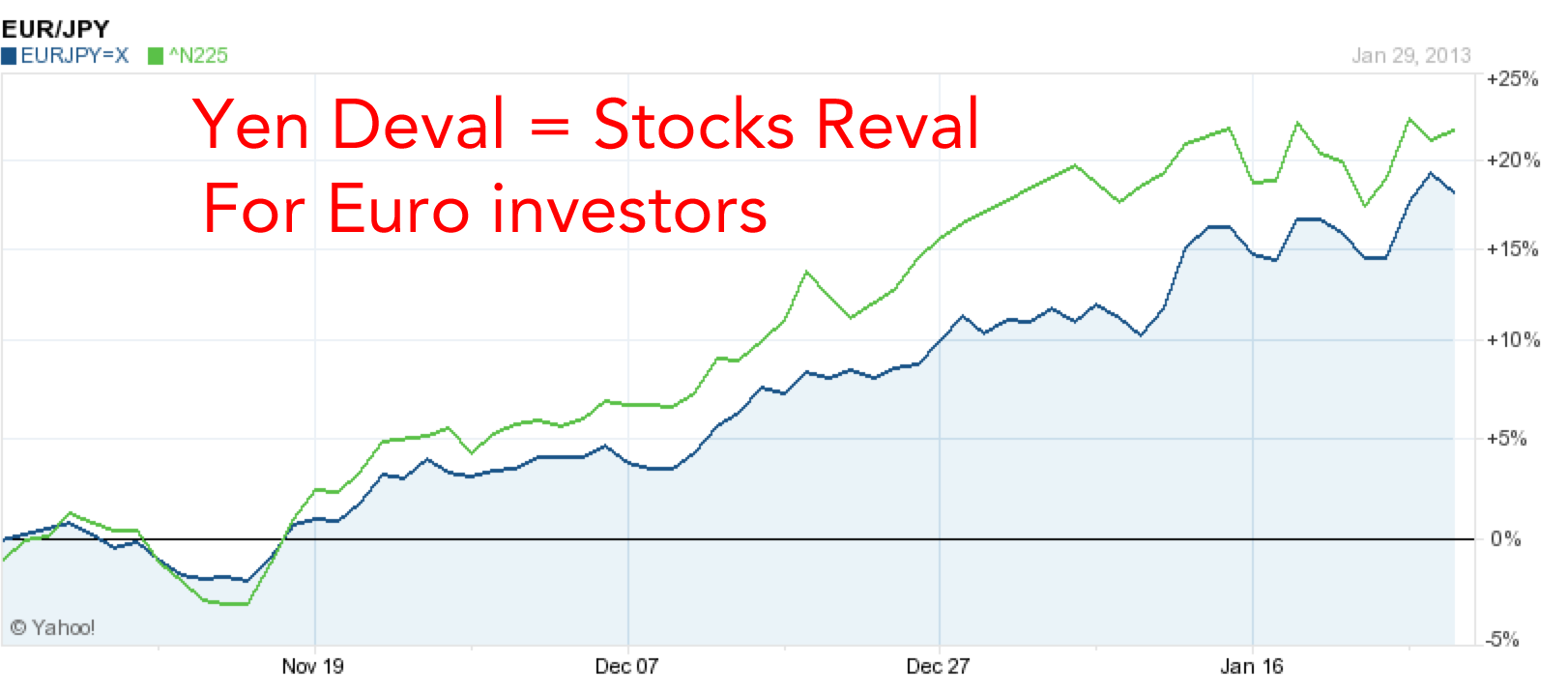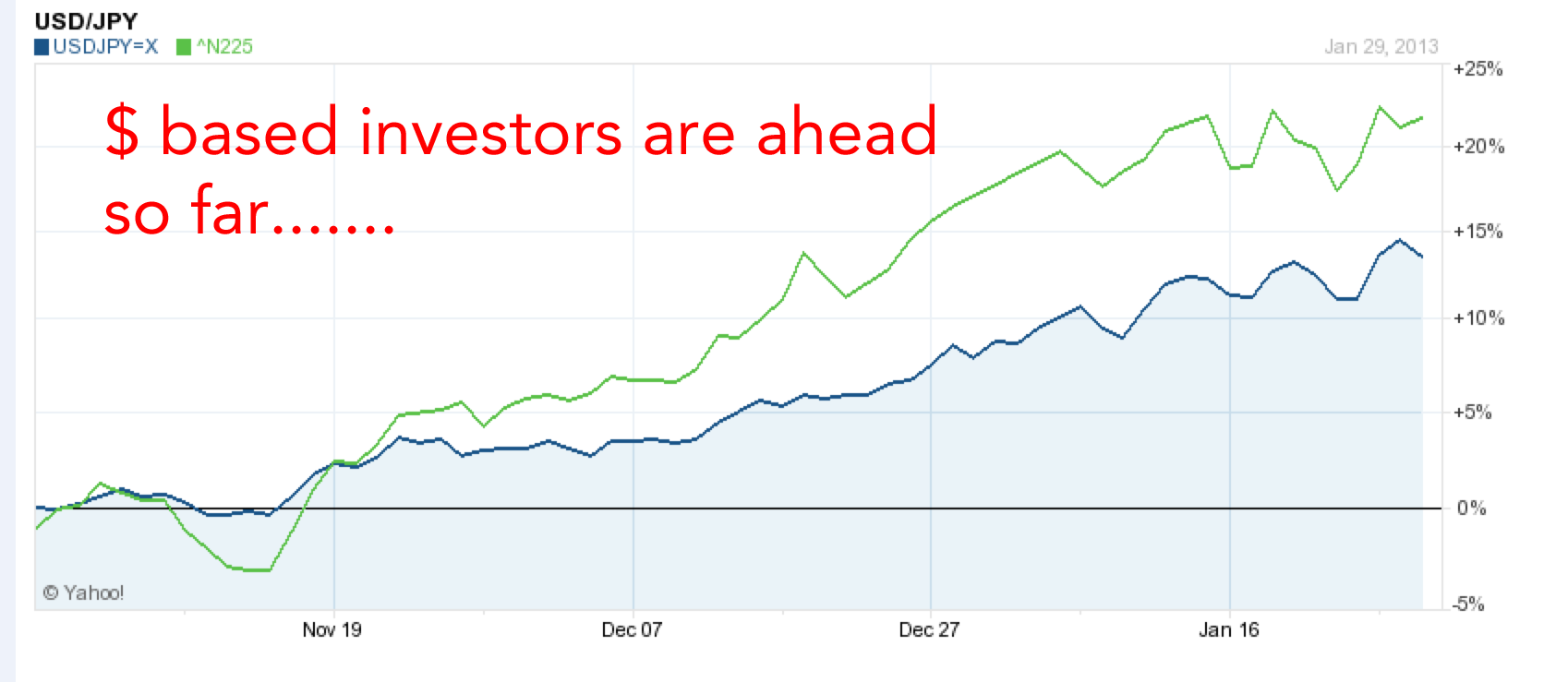In my time I’ve watched a bunch of countries go south. In the 80’s it was all of South America. Poland, Yugoslavia and South Africa also hit the skids during those years.
There was an observable pattern as events unfolded. The early stages of a crisis were always marked with capital outflow by the financial elite in the country. The wealthy families bought real estate properties outside of the country; they increased their ownership of foreign (mostly US) financial assets. They used whatever local currency they had (or could borrow) to buy hard assets in the country. In this case, hard assets meant companies (or farms) that produced stuff that could be exported, and thus be a source of hard currency earnings. Two minor examples:
- In Ecuador there was an explosion of shrimp farming. The expenses of production were all in Sucres (the local currency). The shrimp were sent to the US and sold for dollars. (This was a great business – ecological disaster however.)
- In South Africa, it got so bad that people ended up buying luxury boats with their SA Rands, and just sailing away. A lot of the boats ended up in the Caribbean. Many were sold for cash dollars.
I bring this old stuff up because I see definitive evidence (on a daily basis), that this is happening in China today. You name the city outside of China; I’ll show you the real estate transactions where it is Chinese money that is doing the buying.
Another observable phenomenon back then was in the local stock markets. When the local currency was rapidly devaluing, the only safe-haven trade was to move money into stocks. The stocks in favor during these times of crisis were the shares of companies that were exporters (source of hard currency). In Brazil it was the steel companies, in Argentina/Chile it was the food exporters, in Mexico the money went to the oil exporters.
We are witnessing precisely the same thing happening today in Japan. Japanese stocks are going up in lock step with the falling yen. So far, Japanese stocks have outperformed the currency devaluation. That is true for the citizens of Japan. It has is also been true for most foreign investors. EUR/JPY 1" title="EUR/JPY 1" width="1622" height="717">
EUR/JPY 1" title="EUR/JPY 1" width="1622" height="717"> USD/JPY" title="USD/JPY" width="1698" height="739">
USD/JPY" title="USD/JPY" width="1698" height="739">
China, today, is much different than Argentina was in the 80’s. But the level of capital flight by the wealthy from China should not go unnoticed. There is a big red flag being waved.
Japan is certainly no Mexico, which devalued its currency again and again. But the stock markets of the two countries, then and now, are also raising those red flags.
I’m always wary of looking at the past and using history as a guide for what will happen in the future. To the extent that the past is a guide, then we may be in for a rough spell, one that is not “homegrown”.
By my read of history, the “tipping point” occurs at about the time when local stock market returns fall below the currency depreciation. When that balance is broken, chaos usually follows. In the case of Japan, this could come as a result of a sudden down correction in the Nikkei, coupled with another big move down in the yen versus the euro and the dollar.
As far as China is concerned, I think the cracks are already there. The growth in domestic debt is fueling the capital outflow. The “off balance sheet” financing for the capital outflow is coming from the sale of Wealth Management Products. This powder keg now totals $2 Trillion, and it’s growing fast. I think these investments are not unlike a ponzi scheme.
- English (UK)
- English (India)
- English (Canada)
- English (Australia)
- English (South Africa)
- English (Philippines)
- English (Nigeria)
- Deutsch
- Español (España)
- Español (México)
- Français
- Italiano
- Nederlands
- Português (Portugal)
- Polski
- Português (Brasil)
- Русский
- Türkçe
- العربية
- Ελληνικά
- Svenska
- Suomi
- עברית
- 日本語
- 한국어
- 简体中文
- 繁體中文
- Bahasa Indonesia
- Bahasa Melayu
- ไทย
- Tiếng Việt
- हिंदी
Stocks And Capital Flight, Then And Now
Published 01/31/2013, 02:03 AM
Updated 07/09/2023, 06:31 AM
Stocks And Capital Flight, Then And Now
Latest comments
Loading next article…
Install Our App
Risk Disclosure: Trading in financial instruments and/or cryptocurrencies involves high risks including the risk of losing some, or all, of your investment amount, and may not be suitable for all investors. Prices of cryptocurrencies are extremely volatile and may be affected by external factors such as financial, regulatory or political events. Trading on margin increases the financial risks.
Before deciding to trade in financial instrument or cryptocurrencies you should be fully informed of the risks and costs associated with trading the financial markets, carefully consider your investment objectives, level of experience, and risk appetite, and seek professional advice where needed.
Fusion Media would like to remind you that the data contained in this website is not necessarily real-time nor accurate. The data and prices on the website are not necessarily provided by any market or exchange, but may be provided by market makers, and so prices may not be accurate and may differ from the actual price at any given market, meaning prices are indicative and not appropriate for trading purposes. Fusion Media and any provider of the data contained in this website will not accept liability for any loss or damage as a result of your trading, or your reliance on the information contained within this website.
It is prohibited to use, store, reproduce, display, modify, transmit or distribute the data contained in this website without the explicit prior written permission of Fusion Media and/or the data provider. All intellectual property rights are reserved by the providers and/or the exchange providing the data contained in this website.
Fusion Media may be compensated by the advertisers that appear on the website, based on your interaction with the advertisements or advertisers.
Before deciding to trade in financial instrument or cryptocurrencies you should be fully informed of the risks and costs associated with trading the financial markets, carefully consider your investment objectives, level of experience, and risk appetite, and seek professional advice where needed.
Fusion Media would like to remind you that the data contained in this website is not necessarily real-time nor accurate. The data and prices on the website are not necessarily provided by any market or exchange, but may be provided by market makers, and so prices may not be accurate and may differ from the actual price at any given market, meaning prices are indicative and not appropriate for trading purposes. Fusion Media and any provider of the data contained in this website will not accept liability for any loss or damage as a result of your trading, or your reliance on the information contained within this website.
It is prohibited to use, store, reproduce, display, modify, transmit or distribute the data contained in this website without the explicit prior written permission of Fusion Media and/or the data provider. All intellectual property rights are reserved by the providers and/or the exchange providing the data contained in this website.
Fusion Media may be compensated by the advertisers that appear on the website, based on your interaction with the advertisements or advertisers.
© 2007-2025 - Fusion Media Limited. All Rights Reserved.